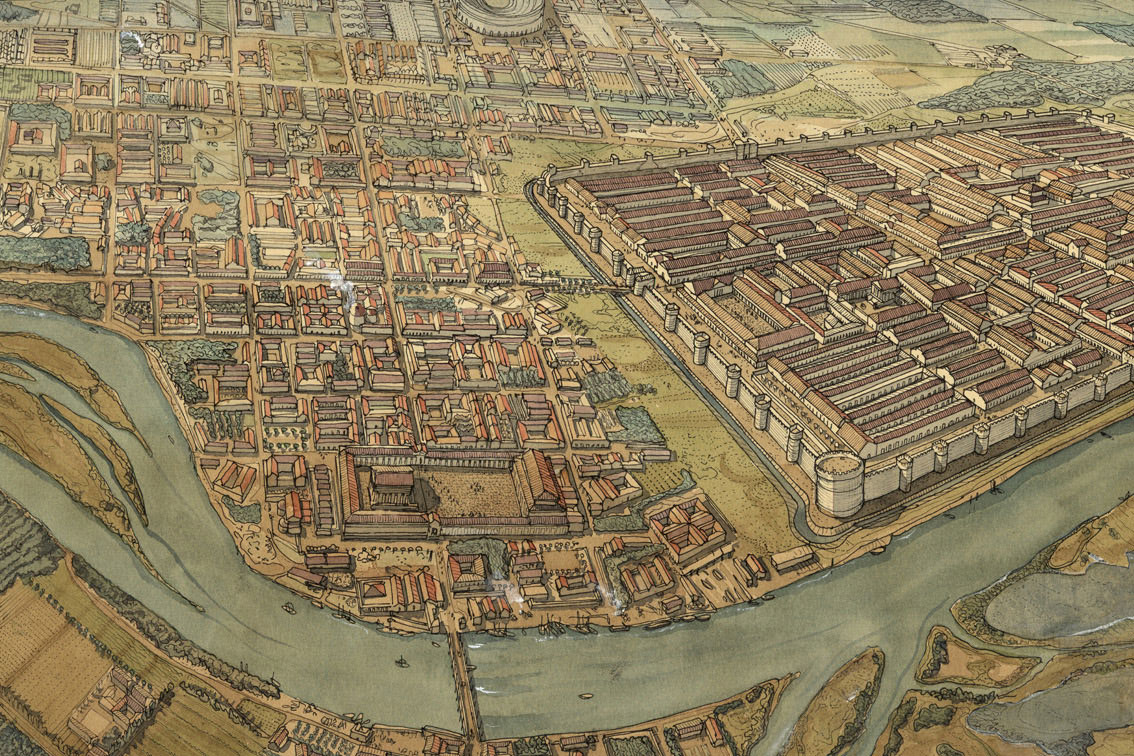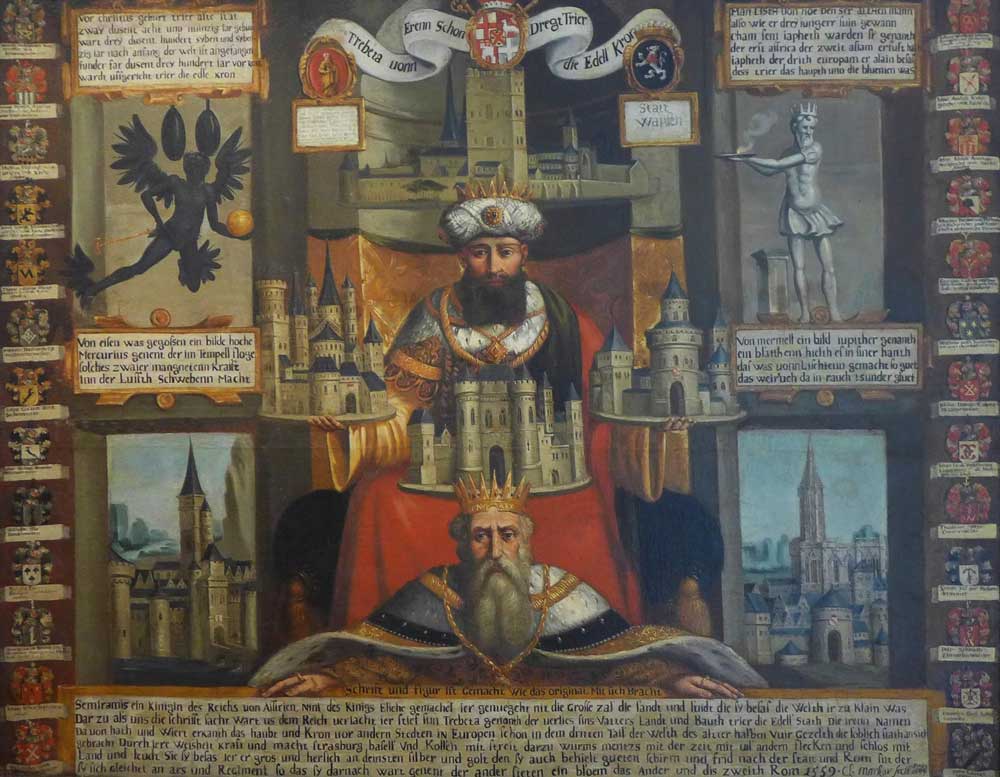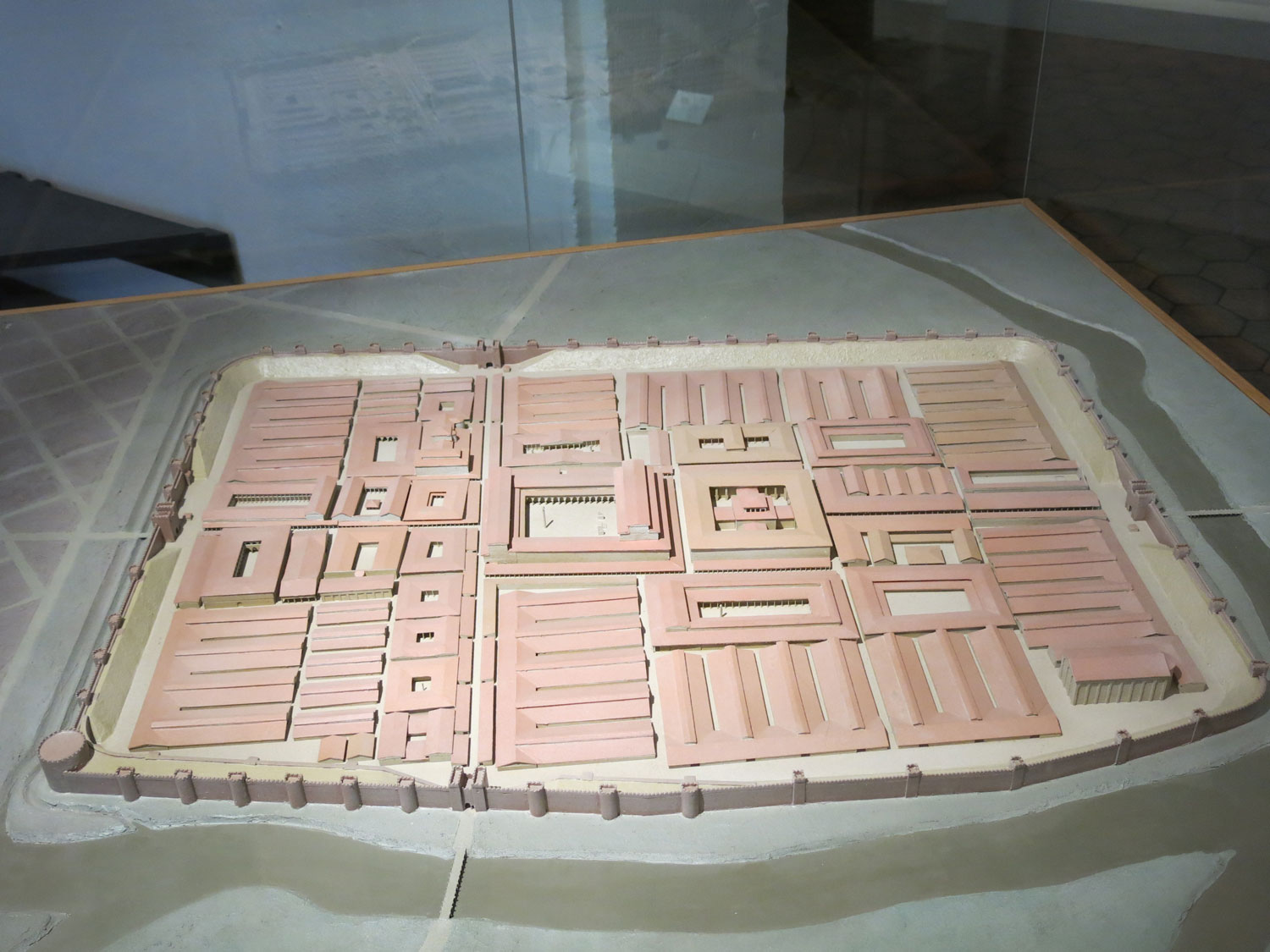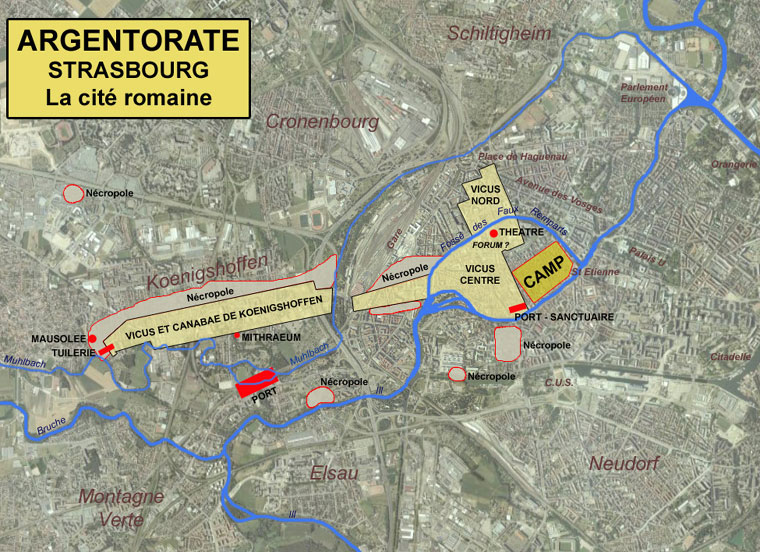Strasbourg’s legendary origins
December 13th 2018, by Gabriel
Most of you probably know that we consider Strasbourg was born in 12 B.C., with the creation of the roman camp of Argentoratum. But do you know about the legend that says it was in fact founded 3000 years B.C.? Let me tell you about it.
The legend
The King Ninus of Assyria founded the city of Nineveh and is said to have reigned from 2890 to 2838 before this dear JC. His first wife gave him a son, Trebeta, but he repudiated her to marry Semiramis. The latter ended up guiltily falling in love with her step-son Trebeta. She went so far as to have Ninus murdered, in the hope of marrying young Trebeta. But the prince, unwilling to betray his father’s memory, fled from the realm of Assyria and embarked on a ship with his friends. For months he traveled to the end of the world, where the sun never sets, looking for a fertile land where he could settle with his friends. He ended up traveling up the Rhine then up the Moselle and stopped in a land that was then unhinhabited. He founded there the city of Trier (from his name Trebeta).
However, Semiramis, who wanted to bind the handsome young man to her will, embarked also on a journey across the world to find her beloved. She left with 5 ships, taking with her a whole army. She ended up traveling up the Rhine as well and discovered Trier. There, having found the object of her guilty love, she profusely gave heated supplications and frenzied invectives in turn. She even threatened to put him to the sword… But the young man, guided by a righteous anger, pierced the heart of the one who’d had his father Ninus killed.
Semiramis’s men, far from wishing to avenge their queen, humbly submitted to Trebeta, and the five ships left in turn to find new fertile lands. This is how the cities of Cologne, Mainz, Worms, Basel and of course Strasbourg were born!
Here is the legend, a bit shortened, of Strasbourg’s origins, which would have been founded not in 12 B.C. but around 2800 B.C. … So, what do you think? Are the origins of the city assyrians or romans? You may see the city differently the next time you follow a guided tour with us! 😉
To go further
In any case, I would like to go back to Strasbourg’s birth because we know that before the Romans, there were Celts in the area, possibly on the exact spot of what is nowadays the Great Island.
Its first name would have been Argentorate, Argentoratis, Argentorata, or even Argentina (as can be seen on the facade of the Palace of the University, next to Germania), then « romanized » in Argentoratum.
The meaning of this name is not known, though there are many hypotheses… The one that suits me best tells about a fortification (from celtic « rat ») and a « silvery » river.
In the end, it is more or less the same concept as « Strasbourg », from latin « Strate » and « Burgum ». So yes, Strasbourg comes from latin, even if it means something in German (which IS NOT a latin language) and means nothing in French (which IS a latin language)… Anyway! « Strate », « Strasse », the road, and « Burgum », « Burg », the castle, the fortification. Strasbourg thus means « the castle on the road », « the castle on roads ».
The fortified city being at the crossroads of two very important axes in the heart of Europe, from East to West to cross the Rhine, and North to South on the Rhine itself, Strasbourg was destined to become a crossroad of Europe, from its origin on.





